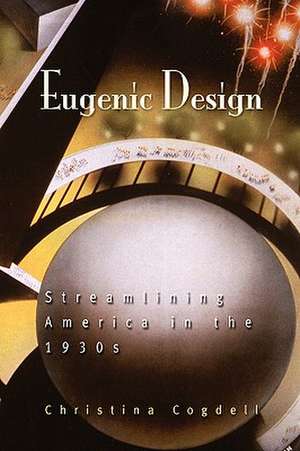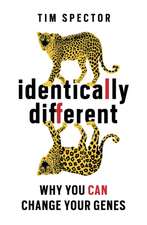Eugenic Design – Streamlining America in the 1930s
Autor Christina Cogdellen Limba Engleză Paperback – 22 iul 2010
Preț: 246.37 lei
Nou
Puncte Express: 370
Preț estimativ în valută:
47.14€ • 49.35$ • 39.24£
47.14€ • 49.35$ • 39.24£
Carte disponibilă
Livrare economică 11-25 martie
Preluare comenzi: 021 569.72.76
Specificații
ISBN-13: 9780812221220
ISBN-10: 0812221222
Pagini: 352
Ilustrații: 1
Dimensiuni: 159 x 226 x 20 mm
Greutate: 0.52 kg
Editura: MT – University of Pennsylvania Press
Locul publicării:United States
ISBN-10: 0812221222
Pagini: 352
Ilustrații: 1
Dimensiuni: 159 x 226 x 20 mm
Greutate: 0.52 kg
Editura: MT – University of Pennsylvania Press
Locul publicării:United States
Notă biografică
Christina Cogdell is Associate Professor at the University of California, Davis, where she teaches art, design, and cultural history.
Cuprins
1. Introduction: Controlling evolution
2. Products or bodies? Streamline design and eugenics as applied biology
3. Progenitors of the future: Popularizing streamlining and eugenics during the 1930s
4. "Flow is the word": Biological efficiency and streamline design
5. Race hygiene, product hygiene: Curing disease through sterilization
6. Future perfect? The elusive "ideal type"
7. Conclusion: Pseudoscience? Pseudostyle?








